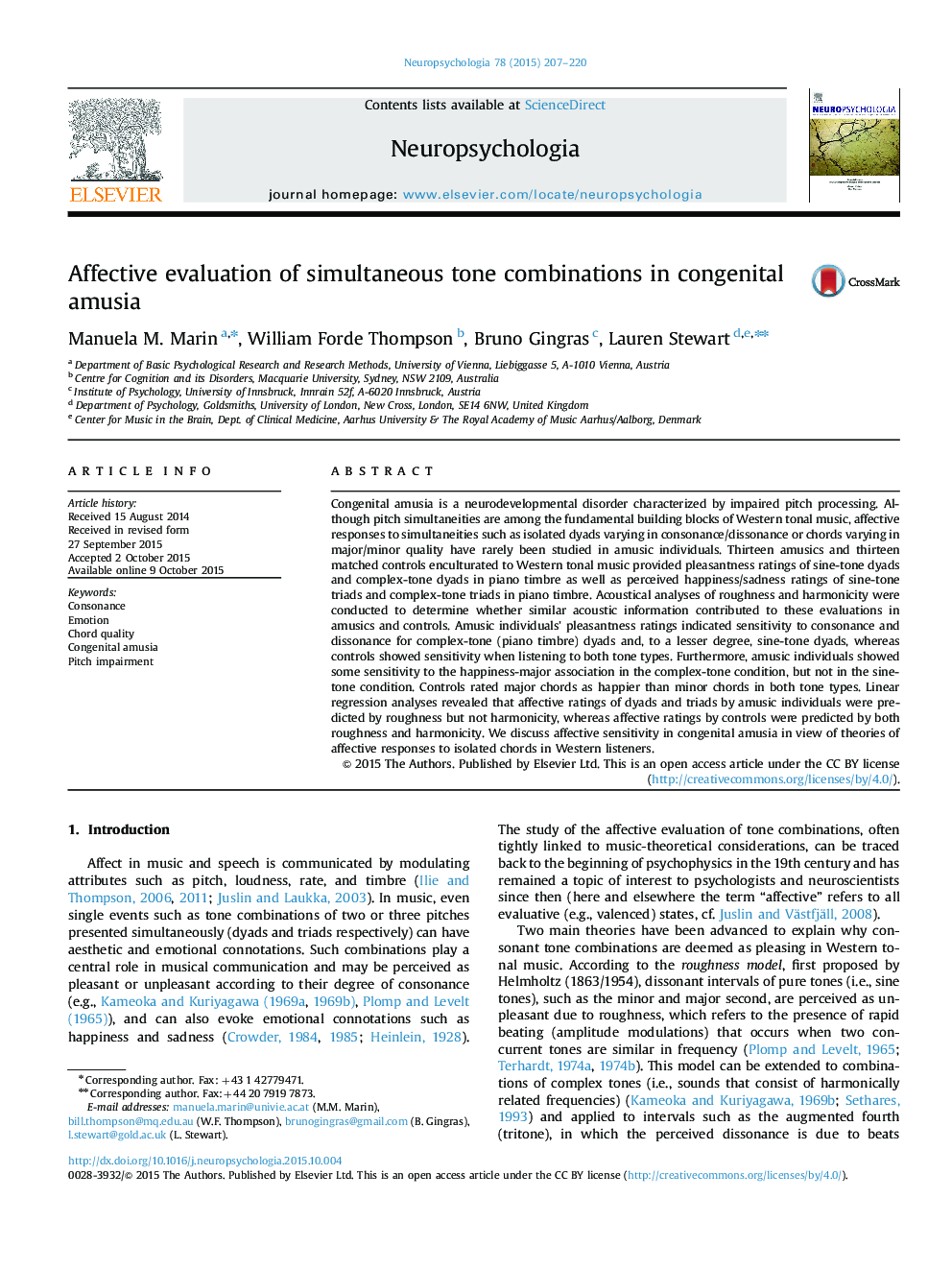| Article ID | Journal | Published Year | Pages | File Type |
|---|---|---|---|---|
| 7319652 | Neuropsychologia | 2015 | 14 Pages |
Abstract
Congenital amusia is a neurodevelopmental disorder characterized by impaired pitch processing. Although pitch simultaneities are among the fundamental building blocks of Western tonal music, affective responses to simultaneities such as isolated dyads varying in consonance/dissonance or chords varying in major/minor quality have rarely been studied in amusic individuals. Thirteen amusics and thirteen matched controls enculturated to Western tonal music provided pleasantness ratings of sine-tone dyads and complex-tone dyads in piano timbre as well as perceived happiness/sadness ratings of sine-tone triads and complex-tone triads in piano timbre. Acoustical analyses of roughness and harmonicity were conducted to determine whether similar acoustic information contributed to these evaluations in amusics and controls. Amusic individuals' pleasantness ratings indicated sensitivity to consonance and dissonance for complex-tone (piano timbre) dyads and, to a lesser degree, sine-tone dyads, whereas controls showed sensitivity when listening to both tone types. Furthermore, amusic individuals showed some sensitivity to the happiness-major association in the complex-tone condition, but not in the sine-tone condition. Controls rated major chords as happier than minor chords in both tone types. Linear regression analyses revealed that affective ratings of dyads and triads by amusic individuals were predicted by roughness but not harmonicity, whereas affective ratings by controls were predicted by both roughness and harmonicity. We discuss affective sensitivity in congenital amusia in view of theories of affective responses to isolated chords in Western listeners.
Keywords
Related Topics
Life Sciences
Neuroscience
Behavioral Neuroscience
Authors
Manuela M. Marin, William Forde Thompson, Bruno Gingras, Lauren Stewart,
